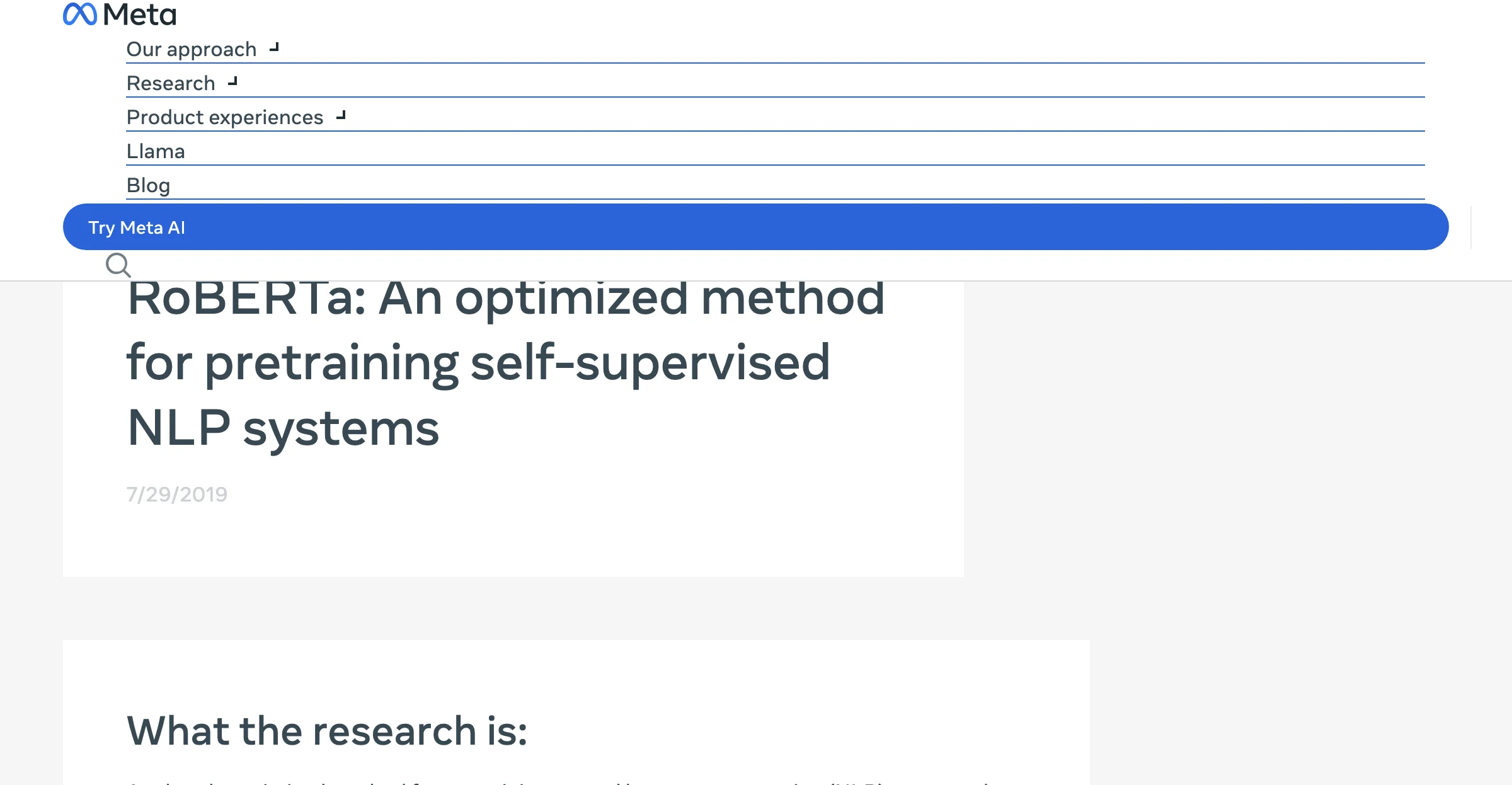RoBERTa is a revolutionary development in the field of natural language processing (NLP). It builds on the language masking strategy of BERT and modifies key hyperparameters to achieve state-of-the-art results. Implemented in PyTorch, RoBERTa removes BERT's next-sentence pretraining objective and trains with larger mini-batches and learning rates. This allows it to improve the masked language modeling objective and leads to better downstream task performance. The model was trained on a variety of datasets, including existing unannotated NLP datasets and CC-News, a novel set drawn from public news articles. Through these design changes, RoBERTa delivered outstanding performance on several NLP tasks and reached the top position on the GLUE leaderboard. This research not only showcases the potential of self-supervised training techniques but also highlights the importance of exploring different design choices in BERT training. RoBERTa is part of Facebook's commitment to advancing self-supervised systems and reducing reliance on data labeling. Its success opens up new possibilities for the development of more efficient and effective NLP systems.
Top Alternatives to RoBERTa
Boba
Boba is an AI-powered ideation tool that assists with research and strategy
Wiseone
Wiseone is an AI-powered tool that boosts web search and reading productivity
Project Knowledge Exploration
Project Knowledge Exploration is an AI-powered research platform that offers in-depth exploration
Runway
Runway is an AI-powered creativity tool for various media
Notably
Notably is an AI-powered research platform that boosts efficiency
PaperBrain
PaperBrain is an AI-powered research tool that simplifies access
Unriddle
Unriddle is an AI-powered research tool that saves time and simplifies tasks
Journey AI
Journey AI converts customer research into actionable journey maps
genei
genei is an AI-powered research tool that boosts productivity
Replio
Replio is an AI-powered research platform that streamlines interviews and analytics
Layer
Layer is an AI-powered research tool that saves time
Iris.ai RSpace™
Iris.ai RSpace™ is an AI-powered workspace for smarter research
Fairgen
Fairgen is an AI-powered research tool that offers granular insights
Towards Data Science
Towards Data Science offers diverse AI-related content and insights
NewsDeck
NewsDeck is an AI-powered newsreader that helps users discover, filter, and analyze thousands of articles daily.
Locus
Locus is an AI-powered smart search tool that enhances productivity by quickly finding relevant information on any web page using natural language.
Encord
Encord is an AI-powered data development platform that accelerates data curation and labeling workflows for computer vision and multimodal AI teams.
Seeker
Seeker is a secure, retrieval-augmented generation AI chat platform that provides trustworthy insights from large data sets.
AIModels.fyi
AIModels.fyi is an AI-powered platform that curates and summarizes the latest AI research papers, models, and tools, helping users stay informed about significant AI breakthroughs.
22Analytics
22Analytics is an AI-powered market research platform that helps users validate ideas and analyze competitors efficiently.
Grably
Grably offers instant access to highly-specific, labeled datasets for AI training, enhancing model accuracy with diverse real-world data.

